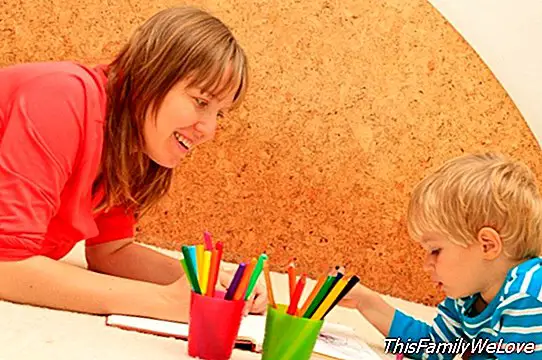Start early: the risk of burning stages for children

In education, running too much is dangerous. If the necessary steps to develop all the skills and abilities are burned, it is possible that the subsequent learning is not adequate. It happens, for example, with writing, an achievement that must be achieved in time. If children are required to write ahead of time, they will not have developed other skills such as balance or body control, necessary to get a clear letter.
The maturational development includes an evolution in which each child has its own rhythm. During this process, you start up your skills, which can be predictable based on a chronological age, which responds to an approximate period of time. We can predict that the child will walk autonomously between 9 and 17 months, but we can not decide how old he or she will be. Each child has a maturational rhythm of his own that we must take into account when we start learning different things.
Even the law of Early Childhood Education states that "the educational intervention should consider as a principle the diversity of students adapting the educational practice to the personal characteristics, needs, interests and cognitive style of children, given the importance that in these ages acquire the rhythm and the maturation process ".
The risk of starting ahead of time
However, the school reality is that the different capacities that children must acquire are awarded to a specific academic year. A clear example is that of writing. The step to Primary takes with it the acquisition of this skill, reason why its learning is conditioned to the stage of Infantile Education. Writing is a very complex process that requires the acquisition of manual, intellectual and maturational skills that the child achieves throughout his development according to his own maturational rhythm.
What happens when determining in a generalized way the moment in which this learning begins is that not all children have acquired the degree of maturity sufficient to face it. In addition, among children of the same school year there may be an age difference of almost one year. This difference is very significant from the maturational point of view in the infant stage.
When a child is forced to start learning to write before he has developed the necessary skills, we say that there is an early learning that, sometimes, passes bill in the medium term, since you can develop a dysgraphia. "Dysgraphia, according to Julián Ajuriaguerra, is a defective writing without a neurological or psychological deficit that justifies it, they are intellectually normal children who write slowly and in an illegible manner, which delays school progress".
Train the fitness or take into account the maturing rhythm of the child
If the second or third year Primary child has bad lyrics, we do not consider the causes. We consider that dI should train that fitness more. Then the pressure begins: calligraphy exercises, copies ... What we are doing is training a defective spelling. We do not consider the possibility of poor learning and the need for re-education.
Nowadays, It can happen that the Infantile Education does not prepare correctly the child for the learning of the writing. This is due to an abuse of the edited material, which obliges the teachers to dedicate a large part of the teaching hours to working with their students in the completion of the sheets designed by the publishers. This has been to the detriment of the hours spent in stimulation, experimentation and psychomotor work that provides the child with the necessary stimuli to start successfully in different learning, including writing.
Cristina Palacios Hernando. Pedagogue
It may interest you:
- Achievements in the development of babies from 0 to 3 years
- Sensitive periods of children for learning values
- The brain and the body development of children
- Learning to write, exercises for children
- The value of effort in early childhood education




